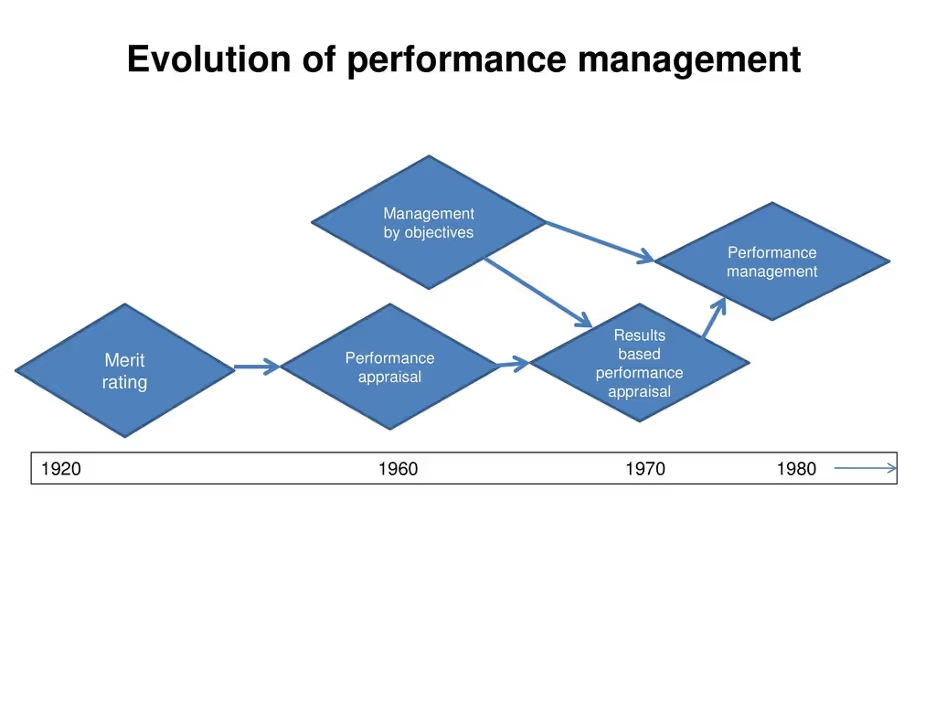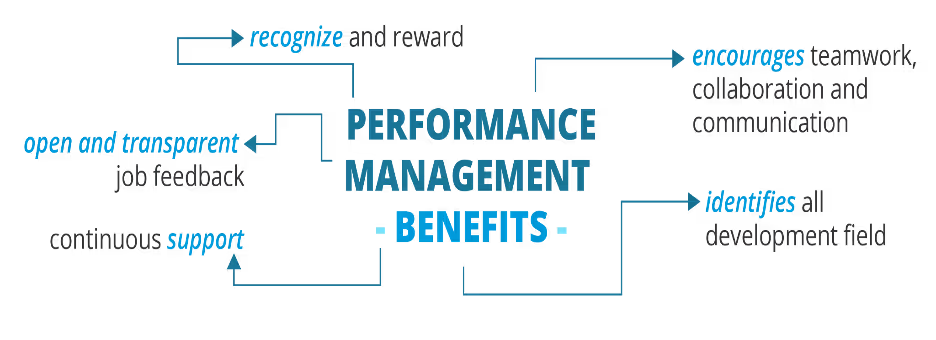14 Ways To Improve Performance Management

Regardless of the approach taken, effective performance improvement requires the identification of specific goals and the implementation of a plan to achieve them. It also typically involves ongoing monitoring and evaluation to ensure that the improvements are sustainable and that progress is being made towards the desired goals.
Performance improvement is something that can be achieved through a variety of methods, including process redesign, training and education, technology implementation, and reorganization.
There are many different approaches to performance improvement, and the most appropriate method will depend on the specific needs and goals of the organization. Some common techniques include:
- Lean Six Sigma: This approach focuses on identifying and eliminating waste in processes, with the goal of improving efficiency and quality.
- Total Quality Management (TQM): This approach involves all employees in continuous improvement efforts, with the goal of increasing customer satisfaction.
- Continuous Improvement: This approach involves ongoing efforts to identify and address problems in processes, with the goal of making small, incremental improvements over time.
- Kaizen: This approach involves small, continuous improvements made by employees at all levels of an organization.
- Business Process Reengineering (BPR): This approach involves a radical redesign of business processes to achieve significant improvements in performance.
History of Performance Management
The concept of performance management originated in 19th-century Germany but has since become standard practice worldwide. The main goal of performance management is to help organizations identify their strengths and weaknesses to improve over time.
This means that it's important for companies to know their strengths to focus on improving them and ensuring they are doing what they need to be doing. Performance management also helps organizations make better decisions by giving them more information about how well employees perform.

How to Improve Performance Management
Here are a few tips and tricks you can follow to improved performance management. Check them out below.
1. Make sure you have a clear, easy-to-understand set of performance expectations,
2. Ensure your employees are engaged in the process of giving feedback,
3. Ensure you're providing constructive and actionable feedback—not just praise and criticism,
4. Help your employees see what they're doing well instead of just telling them what they're doing wrong,
5. Help your employees identify their strengths and weaknesses, so they can use those strengths to fix their shortcomings,
6. Create an environment where people feel like they belong and can contribute positively to the company,
7. Teach your employees how to give and receive feedback effectively by setting up regular meetings with a trainer or coach or building a culture of 1 on 1’s,
8. Make sure everyone knows what's expected of them before they start working at the company (and not just as part of orientation),
9. Provide regular training for all managers about performance management best practices—and hold yourself accountable for these training sessions too! This will ensure everyone is on the same page at all times and will lead to better results from both sides,
10. Have clear goals for each employee's performance and specific steps they can take toward achieving these goals,
11. Remember that sometimes it's not about your employee but about yourself and how you can improve too, so keep improving the systems you have in place to make the performance management process smoother,
12. Use a 360° feedback model to get feedback from all teammates and managers,
13. Have regular meetings where everyone can share ideas and discuss challenges,
14. Don't make assumptions about people's performance based on their titles or position in the company
Also Read: Five Hacks For Performance Improvement
Why is it important?
There are several advantages of having a formalized performance management system in place:

● It helps departments stay on top of their responsibilities and make sure that everything is being done according to standards.
● It improves communication between departments.
● It helps departments understand which areas need attention.
● It allows managers to evaluate how well employees are doing based on their job description.
● It will enable managers to see if there are any gaps between what employees say they do and what happens.
Conclusion
Performance management is important because it provides employees with the day-to-day information they need to do their jobs while also motivating and inspiring them to work harder. It helps make employees feel valued, respected, and recognized for their hard work.
Not only that, but it can lead to increased collaboration between managers and employees because of the clear expectations laid out at the beginning of the year.
Find out how Compport can help you manage all your Performance Management process, book a demo today!
%2520(6)%2520(2).avif)


%20(49).png)
%20(48).png)
%20(47).avif)
